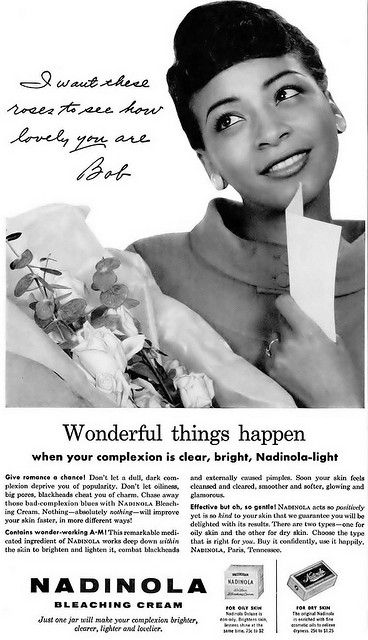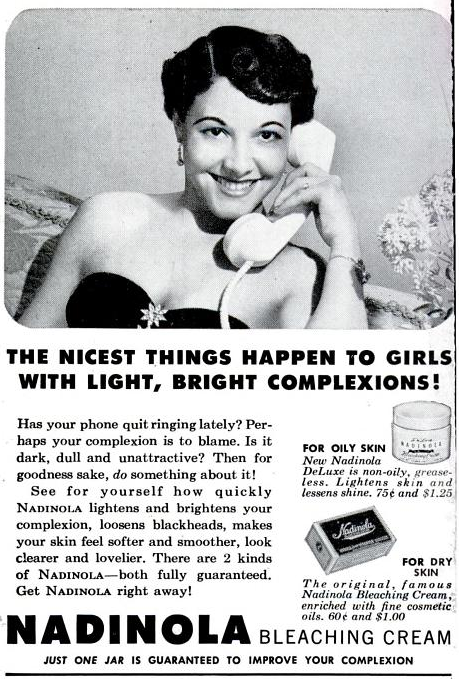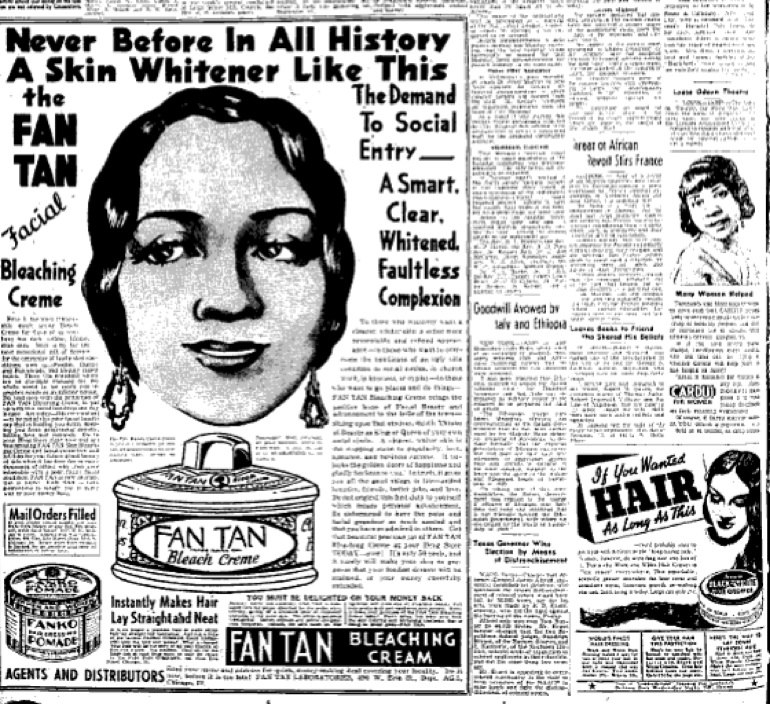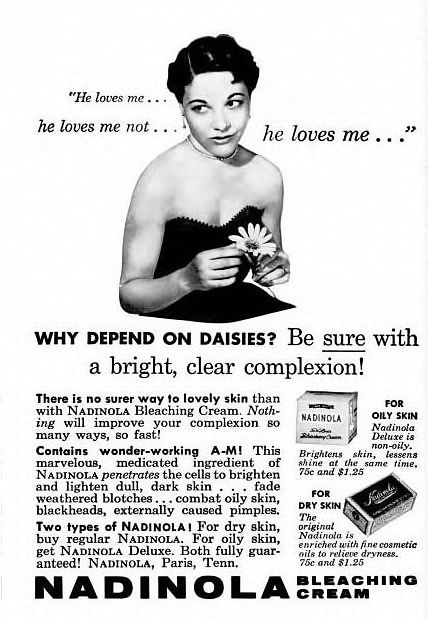In a 1926 newspaper column titled, “Is the American Negro to Remain Black or Become Bleached,” the Dean of Howard University writes, “To absorb a handful of Negroes in America and leave the unbleached millions of African in their savage blackness would be to deepen the gulf of racial cleavage as a world problem.” These words were met with no backlash and aligned with the larger society’s position on the issue. As implied in the column, skin bleaching went beyond cosmetics. It was political; the ads implied that whiter skin would advance your career and your future, help you find a spouse, and in essence, help integrate black Americans into white society. Many skin bleaching companies targeted black Americans in their ads.






